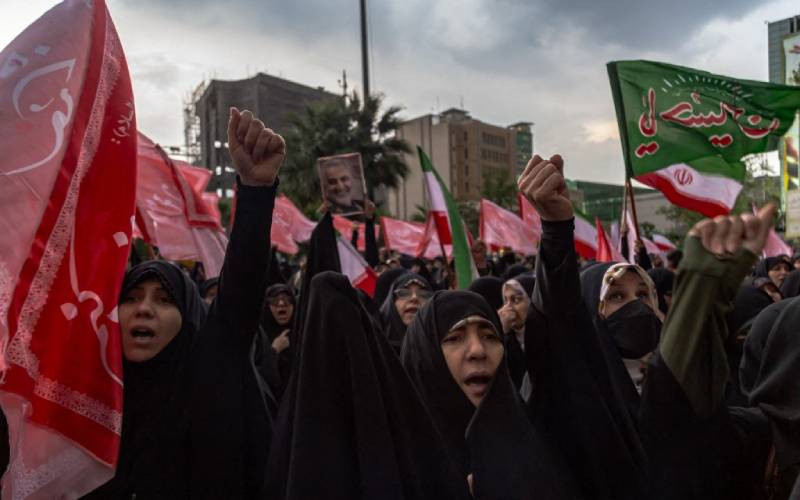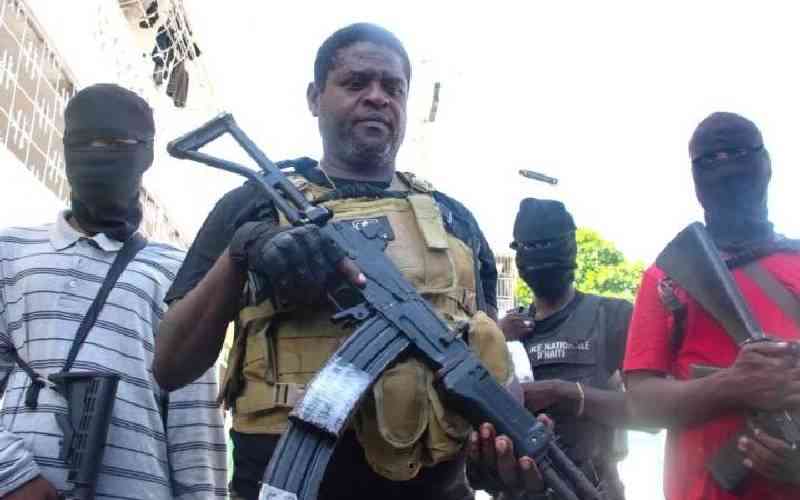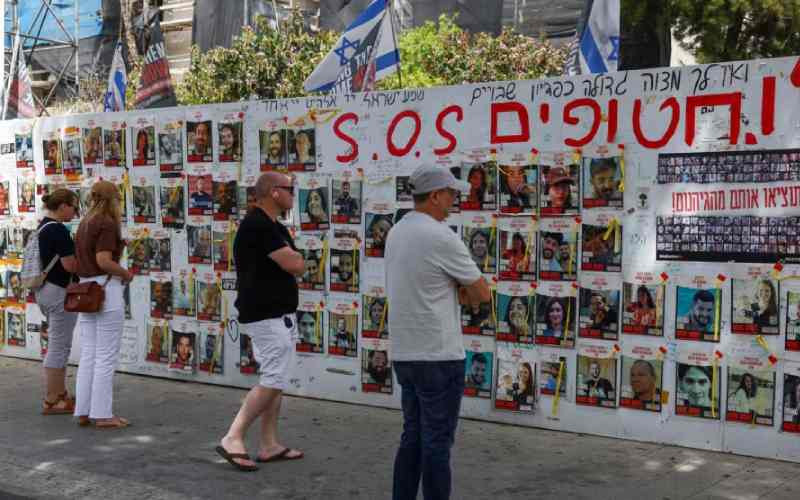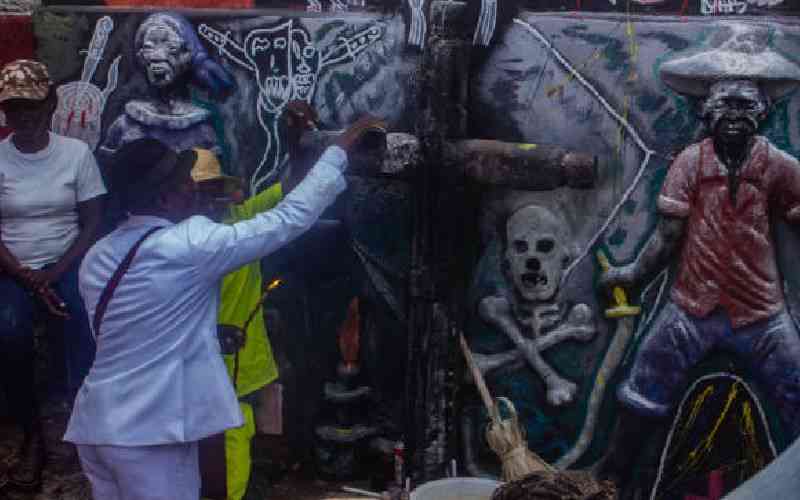
Haitian Day of The Dead. [iStockphoto]
The restless state of Haiti has had a strong anti-imperialist movement for about two centuries largely because of its frosty history with the United States.
The US army invaded and forcefully occupied Haiti from 1915 to 1934 and together with Christian religious groups, it mounted an anti-voodoo religion campaign.
The voodoo culture is widely practiced in the Caribbean nation but western media including the Americans have painted it as a cult.
Protestants say the voodoo spirit does not embody good virtues, while Catholicism, which has been the official religion of Haiti since 1860, has over the years evolved to tolerate some cultural aspects in its preaching and so they are accommodating to Haitian voodoo than protestant Christians.
According to Haitian tradition, African slaves met at a plantation called Cayman at night to plan their liberation in August 1791 where a voodoo cultural ritual was conducted.
That became the watershed moment in Haitian history because it led to independence. However, Christians, especially evangelicals in the US, have held a different perspective about what happened on that night.
They claim that at the meeting, the slaves dedicated the country of Haiti to the devil and that is why endless problems including earthquakes and killings have happened in the country.
“Haiti is cursed because the country was dedicated to the devil in 1791. Baptists, Methodists, Pentecostals are all united to counter voodoo traditions,” was the narrative propagated in the early years.
They see voodooism as a social problem in the Haitian society that divides the nation and not only causes social alienation but is also responsible for underdevelopment and all moral problems.
Dr Kenneth Ombongi, a history lecturer at the University of Nairobi describes Haitians as: “Children of war who for over a period of 200 years have rejected anything that has traces of foreign domination, imperialism or oozes Americanism.”
It is argued that Kenya can succeed in Haiti if it works with pan African countries, among them those in the Caribbean, to help restore peace because the Americans and Canadians are not acceptable due to geopolitical interests.
To create a more conducive environment for the Kenya-led Multi-National Security Support Mission to succeed, the US should perhaps organise for a transition of government that will include all interested parties in Haiti.
“Perhaps, we should be appealing to the political ruling class in Port -au- Prince to transition otherwise there is going to be a problem because we may run the risk of being perceived as enablers of an illegal regime,” says Dr Hassan Khannenje of the Horn Institute.
The situation in Haiti is certainly not a walk in the park and although any intervention by the international community to stabilise the pacific Island has to be well crafted and uniquely executed, it has to be done all the same and that is why Kenya’s role is important. The world cannot just sit and watch the ongoing madness.
Prof Peter Kagwanja of the Africa Policy Institute, however, argues that although Kenya can help Haiti get out its current situation, it would not be helpful if the country is perceived to be siding with the Americans.
As earlier stated, the Americans and other western countries have in the past fallen out with Haitians because of meddling with their cultural practices, including the practice of voodoo religion.
French colonial rulers peopled Haiti with black slaves captured on the west coast of Africa where the Fon and the Yoruba, among others, practiced voodoo religion.
The proud slaves continued with their entrenched cultural practices which their master claimed were beliefs in African witchcraft and demons.
Slaves also held an overwhelming hatred of their oppressors which led to passionate and violent uprisings to the extent that even the all-conquering Emperor Napoleon eventually had to concede defeat in 1804.
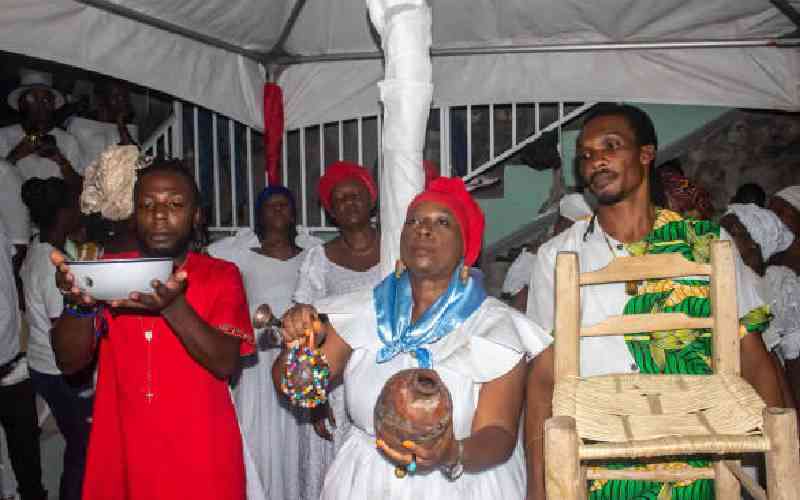
This image was taken in Delmas, Haiti, on December 21, 2022, they are summoning a voodoo spirit, a white plate, a jug, a tchatcha, and a chair in their hands. [iStockphoto]
And so, Haiti became the first independent black-governed republic in the world, although over the years it has been governed by some incompetent and greedy leaders.
François Duvalier, also known as Papa Doc, served as the President of Haiti from 1957, when he was elected on a populist and black nationalist platform until his death in 1971.
After the July 1958 coup attempt against Papa Doc, he purged the army and law enforcement agencies in Haiti and executed many officers he perceived to be a threat to his regime.
He thereafter created a secret paramilitary police force in 1959 which Haitians named after the evil spirit Tonton Macoute who is known for kidnaping and punishing unruly children by snaring them in gunny bags.
The Tontons committed all manner of crimes, including kidnapping and killing opposition leaders and also murdering and raping innocent civilians.
His son Jean “Baby Doc” Duvalier succeeded him in 1971 at the age of 19 and improved relations with the US. He was overthrown in February 1986.
The relationship deteriorated under the administration of Jimmy Carter, only to be normalised by Ronald Reagan who succeeded Carter, although the latter ordered for Baby Doc’s exile in France after denying him asylum in the US after he was ousted. He was flown to Paris on a US air force jet.
It is documented that his long reign Papa Doc promised people that by witchcraft and black magic, he would summon the devil himself to share his power with all the voodoo worshippers of Haiti.
Professor Celucian J. Joseph, a Haiti national who now resides in the State of Florida, a holder of two PHDs in religious studies from University of Texas Dallas and the University of Pretoria in South Africa is a specialist on Haitian voodoo.
He says the term voodoo is from the Fon language in West Africa and therefore has African origin. It was, therefore, not invented in Haiti or New Orleans as has been suggested by many western anti-voodoo scholars.
It is a religion that is also practiced in other Caribbean Islands, particularly in the Dominican Republic, with a different form of it also found in Brazil.
Prof Joseph says plantation owners created stereotypes about voodoo and together with colonial Christians they described it variously as an African dance, a superstition, bizarre practice, sorcery and magic thus creating a misunderstanding that is associated with the religion.
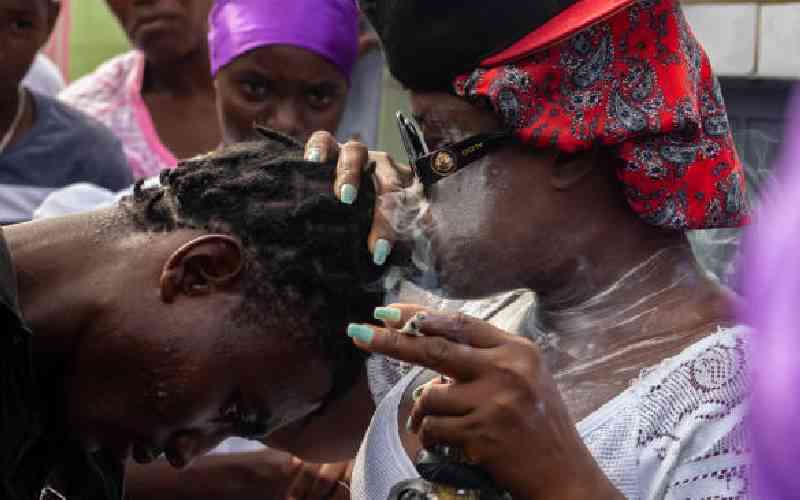
The voodoo culture is widely practiced in the Caribbean nation but western media including the Americans have painted it as a cult. [iStockphoto]
And because voodooism is so widespread in Haiti, the Christian faith there were also linked to Afro-phobia and voodoo-phobia by the local population.
“There have been four major campaigns against voodoo practitioners, the first one taking place from 1896 to 1900 and the most important one from 1939 to 1942 right after the US military left Haiti,” says Joseph.
Between 1915 to 1934 during the US occupation, a serious anti-voodoo campaign was mounted together with the Catholic Church, leading to the burning of voodoo temples and seizing of many sacred objects of worship with many voodoo practitioners losing their lives.
The Haitian state created specific laws to burn what they called superstitious practices which they associated with the voodoo religion.
Protestant churches and evangelical pastors also practiced their own version of voodoo-phobia through street preaching and crusades, leading to a historic partnership between the Haitian State and the church in persecuting voodoo practitioners.
Prof Joseph further argues that a lot of stereotypes and simplistic thinking has been made against vodoo, yet its is a religion like any other.
“There is priesthood and sacrifice in voodoo. It has an ethical and theological system. It is a viable religion just like Christianity, Islam or any other religious system that we know about. There is the veneration of the spirit that is created by God himself,” he says.
The spirit and the voodoo tradition are said to be created by God himself to serve as the mediator between God and human beings and so one cannot have access to God unless passes through the spirit.
So the two are different aspects of God's attributes although there are many gods that are worshiped in voodoo among them one that is the symbol of the divine love and another with roots in Cuban tradition that is the god of the cross roads.
“Without him there is no communication between God and human beings and so he plays a role just like that of Jesus Christ as a mediator,” added Joseph.
 The Standard Group Plc is a multi-media organization with investments in media platforms spanning newspaper print
operations, television, radio broadcasting, digital and online services. The Standard Group is recognized as a
leading multi-media house in Kenya with a key influence in matters of national and international interest.
The Standard Group Plc is a multi-media organization with investments in media platforms spanning newspaper print
operations, television, radio broadcasting, digital and online services. The Standard Group is recognized as a
leading multi-media house in Kenya with a key influence in matters of national and international interest.


